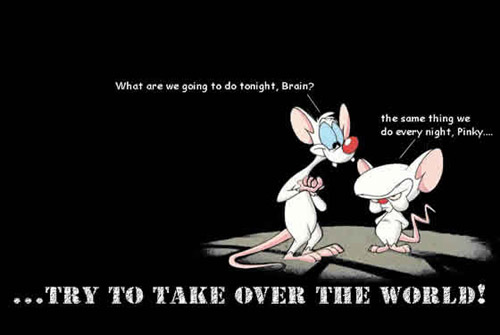This week I showed the comedy "I Heart Huckabees" in class. Granted, this is an obscure film (although it has very well-known actors such as Mark Wahlberg, Dustin Hoffman and Lily Tomlin), and if you don't know anything about Buddhism, Existentialism, Nihilism, String Theory, Environmentalists and Suburban Sprawl, you are apt to find the film ridiculous, devoid of meaning, and definitely not funny. My students had to research all of the above before watching the film: they got it.
One of the film's main themes is the idea of interconnectivity. We are all connected to everything else, and the past, the present and the future manifest themselves simultaneously. In a nutshell, as Dustin Hoffman's character notes, "You are now what you were and will ever be." We are not free of the past as it dwells in every action we take in the present and in the future. We are also not isolated; our actions and very being are connected to world and to everything in it. As String Theory postulates, the only thing that differentiates you from the chair that you are presently sitting in is that the sub-sub atomic strings that make up you are oscillating at a different "frequency" than the chair's. But really, you and the chair are fundamentally interconnected by these strings. Like Zeno's Paradox, there is no dividing line, no separation between things at a sub-atomic level: separation is an illusion perpetrated by the macroscopic world we live our lives in.
While the above may seem strange or hippy-dippy, it can be applied to Iraq. We are now what we were and will ever be in Iraq. Our actions in the past resonate in the present, and manifest themselves in the future. We, the American public, like to think we are somehow isolated, or not a part of the war, but this is an illusion. Every action or non-action taken in Iraq affects all of us in some way. For some it is a direct connection, such as a family member that serves in the armed forces; for others, it is more indirect, such as the rise in fuel prices because of instability in the region, and the consequent rise in food prices and energy. But every child that dies in Iraq has some impact on a child in the U.S., whether the death manifests itself in a revenge killing of a soldier/parent, or helps turn the good will of the Iraqi people into a smoldering hatred of the United States, which in turn creates more instability in Iraq, which in turn affects the region, and affects us. Perhaps mom can't pay the gas bill and buy enough food, and the child lives without heat and adequate nutrition, which affects his or her performance in school, and may indeed determine whether he or she succeeds in life. This is just one example of a myriad of examples of interconnectivity.
So how do we leave Iraq without shaping a more problematic future for the country, the region, the world? We do not live in one bubble and the war does not exist in another. We went in carelessly, and must exit carefully (to crib a line from Obama). I would love for readers to post their ideas of an exit strategy, or whether there should even be one. Post away!



0 Comments:
Post a Comment
<< Home